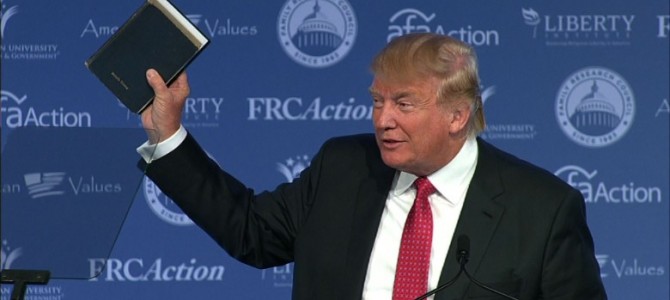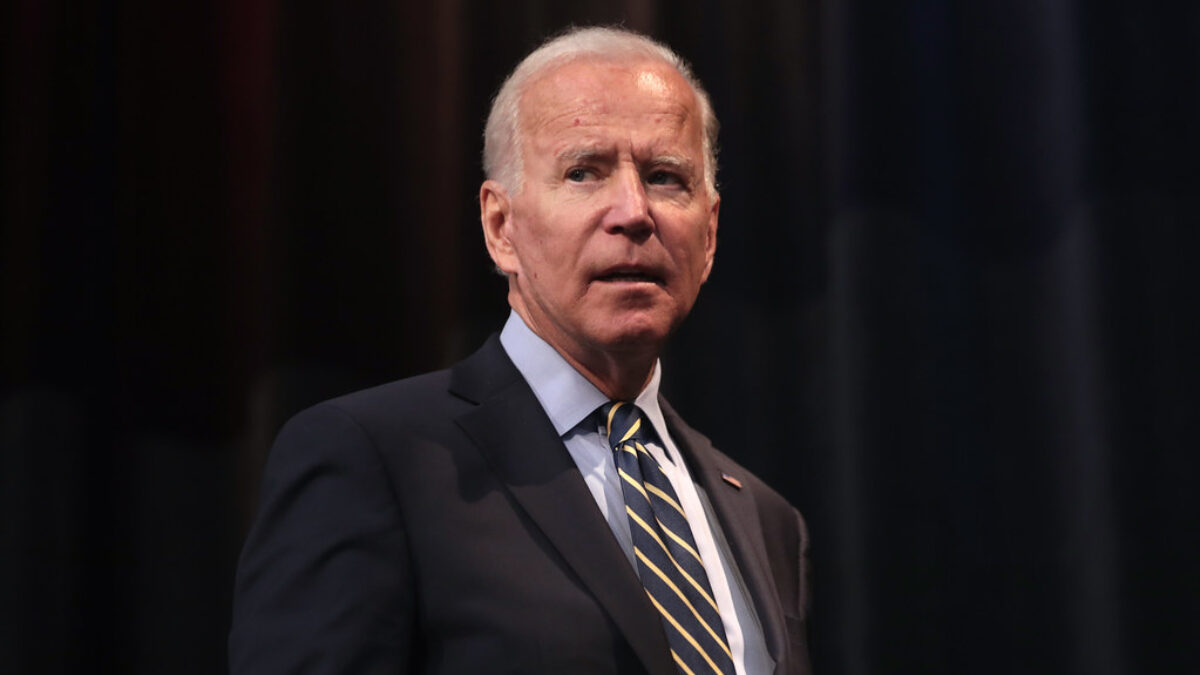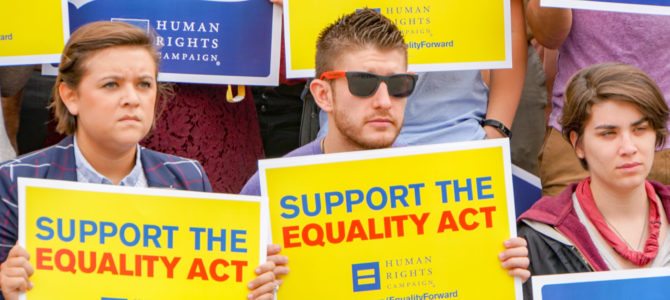Donald Trump has made a victory march across the South, the supposed bastion of evangelical social conservatism on which Ted Cruz had counted as his springboard to the Republican nomination. This has led many commentators to wonder how on earth evangelical voters could support—as Korey Maas asked in a similar context—“an unrepentant strip club owner.”
Political scientist Darren Patrick Guerra has observed that some clarity on this question can be found from carefully examining the exit polling data. In state after state, Trump has won a plurality, but only a plurality, of evangelical voters, ranging from a low of 33 percent in Arkansas and South Carolina to a high of 48 percent in Mississippi.
So, one might ask, what’s going on down at the First Baptist Church, if anywhere from a third to nearly half the people in the pews are voting from someone who probably hasn’t ever read the Bible his grandmother gave him? This table, derived from the CNN exit polling data, sheds some light:
The first column shows that Trump garners a plurality of the substantial evangelical vote in each state. The second shows that, among voters who say shared religious beliefs matter, Trump’s support declines a little, and Cruz’s increases. In the third column, among the roughly one-third of voters for whom shared values are the most important candidate quality, we see that both Cruz and Marco Rubio (save in Mississippi) significantly outpoll Donald Trump.
While not all of those “values voters” are evangelicals—some may be Catholics and even a few may be Jewish—the vast majority very likely are. We might tentatively conclude, then, that those who take the moral worldview traditionally associated with evangelicalism most seriously are quite unlikely to support Trump, at least in the primaries.
We can arrive at much the same conclusion by following two other lines of argument. Religious historian Paul Matzko compared voting returns and church membership data for South Carolina, discovering that Trump did worst in counties where church membership was highest. If you take your faith seriously enough to join a church, which requires more than just self-identification to a pollster, you’re less likely to vote for Trump.
You can find a similar distinction between nominal and behaviorally consequential faith by looking at the 2012 general election exit polls. Protestant and Catholic weekly church attenders reported 15 percent higher support for Mitt Romney over Barack Obama (70-55 for Protestants, 57-42 for Catholics). To be sure, Romney actually garnered less support from Protestant weekly attenders than from evangelicals, but that’s likely because the former population also includes substantial numbers of African-Americans.
What This all Means
These data point to a couple of inconvenient truths. First, for political figures who wish to mobilize “evangelical social conservatives” or religious leaders who wish to speak for them, there are probably fewer to mobilize or to claim on one’s behalf than we thought. About a third of the Republican primary electorate in the aforementioned six southern states consists of “values voters.” That’s not enough to win primaries, let alone general elections.
If you’re a politician, you have to build a broader coalition. If you’re a religious leader wishing to influence elected officeholders, you get a seat at the table, but not necessarily at the head. There may never have been a “moral majority,” but there certainly doesn’t seem to be one now. (I hasten to add that I’m not here arguing that only so-called values voters approach politics from a moral point of view. There are decent men and women of good will all across the spectrum.)
The second inconvenient truth is for Trump. He likes reading polls that make him feel good, so he might “love” the evangelicals who “love” him. But he hasn’t won over lots of observant and conservative evangelicals. If he’s the nominee and substantial numbers of them stay home this fall, he can’t win.
While they—oh, heck, we (since I’m one of them)—are open to stories of a “road to Damascus” conversion, Trump’s record doesn’t augur well. Evangelicals who take their faith seriously have in recent decades voted religiously (in both meanings of the term). This has typically helped the Republican nominee. This fall, if Trump is the nominee, I’m not so sure.









